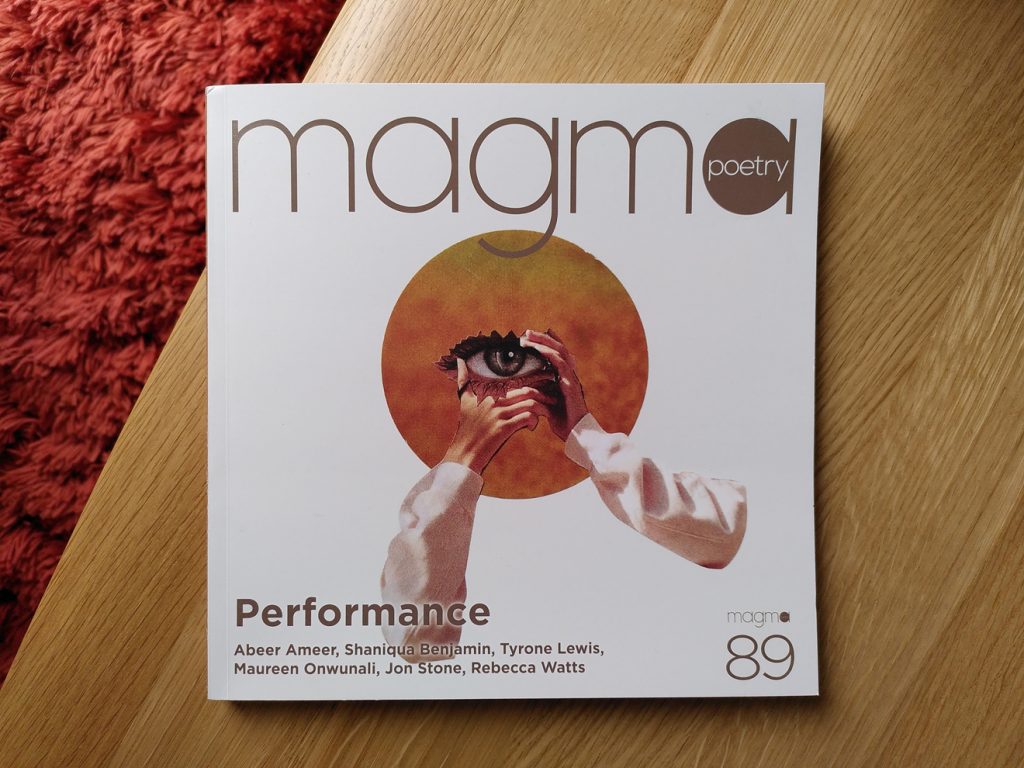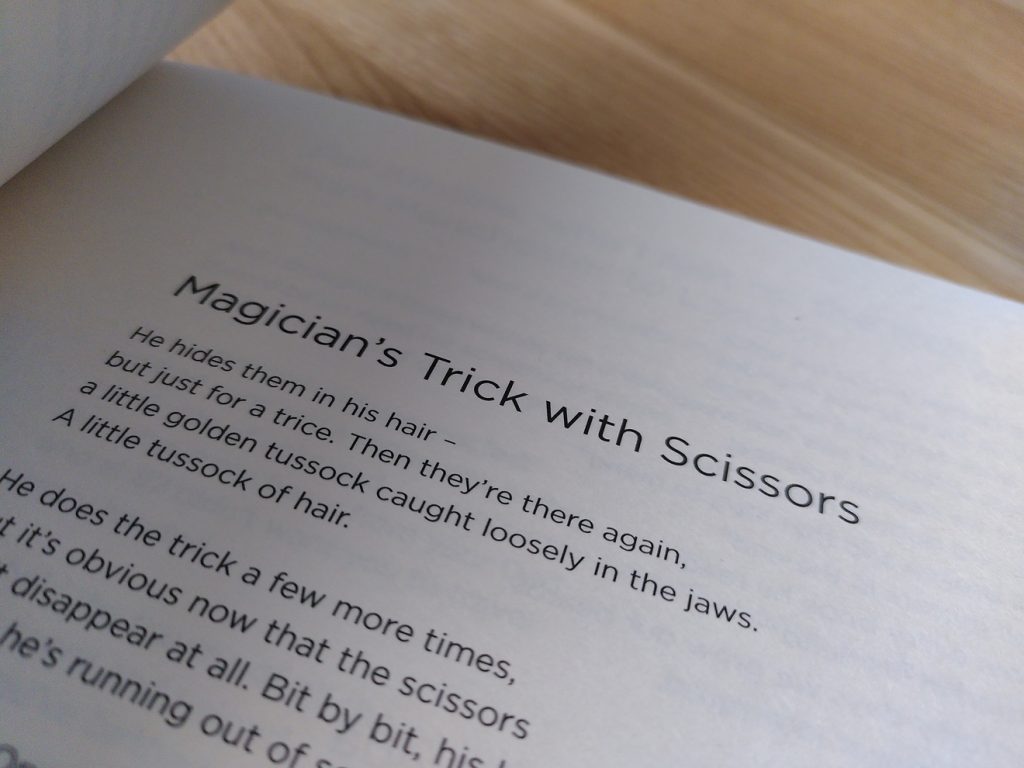
I have a new poem published in Magma 89: Performance — and for the first time ever (I think) I’m named on the cover! Magma is a long-running, elegantly produced poetry journal which rotates its editors with every themed instalment, ensuring a wider-than-normal range of content from issue to issue. I co-edited number 64, Risk, nearly a decade ago, and had written for their blog before even then. They were also one of the first journals to take a serious interest in my work, offering me a few spotlight pages back in 2012, for which I have Julia Bird to thank. This time my thanks go to editors Mariam Chaudhri, David Floyd and Josiane Smith.
The poem, ‘Magician’s Trick with Scissors’, is from a sequence of Magician poems. The character last appeared in poems published in Berlin Lit Issue 5; he is a magician who has fled his Circle with a stolen something, and is half hiding out, half preparing for an unwinnable battle ahead. Here’s the beginning of his latest outing:

The rest of the issue contains abundant reviews, the winners of Magma‘s annual competition (poems on the devastation in Palestine, linking birth to the Scapa Flow in Scotland, being overwhelmed by scenic beauty), an article by Niall O’Sullivan on the impact of the internet on the spoken word scene, and poems by, among others, Martha Sprackland, JP Seabright, Rebecca Watts and Jerold Yam. The theme of the issue lends itself readily to consideration of what, if anything, is not some kind of performance, or can avoid being construed as such. I noted two closely related titles: Harper Walton‘s ‘Baby Let’s Roleplay’ and Erica Hesketh‘s ‘Live action role-play’, both of which work through miniature sequences as if trying on clothes. In Walton’s poem, it’s metaphors being tested:
I’m an amoeba splitting
into two smaller amoeba
and you’re the wholeness I no longer feel
I’m an all black outfit
you’re the rainbow scarf a stranger
strangles my wearer to death with
I like how you have to unpick the image of that second stanza to appreciate it fully.
In Hesketh’s poem, meanwhile, a whole cast of characters are paraded, their stories glimpsed in a way that reminds me of the way epic poems recount battles (hence the title, which alludes to medieval reenactment):
The paramedic arrives to deal with a minor incident
while the folk musician leads all the cows and beds
in song. The PA glances at her watch and nudges
the photographer, who is cleaning her lens again.
I feel like there ought to be a recognised subgenre of poem, related to the list poem, of which this is an example — one in which many persons put in an appearance, but each enters and leaves the poem very briskly.